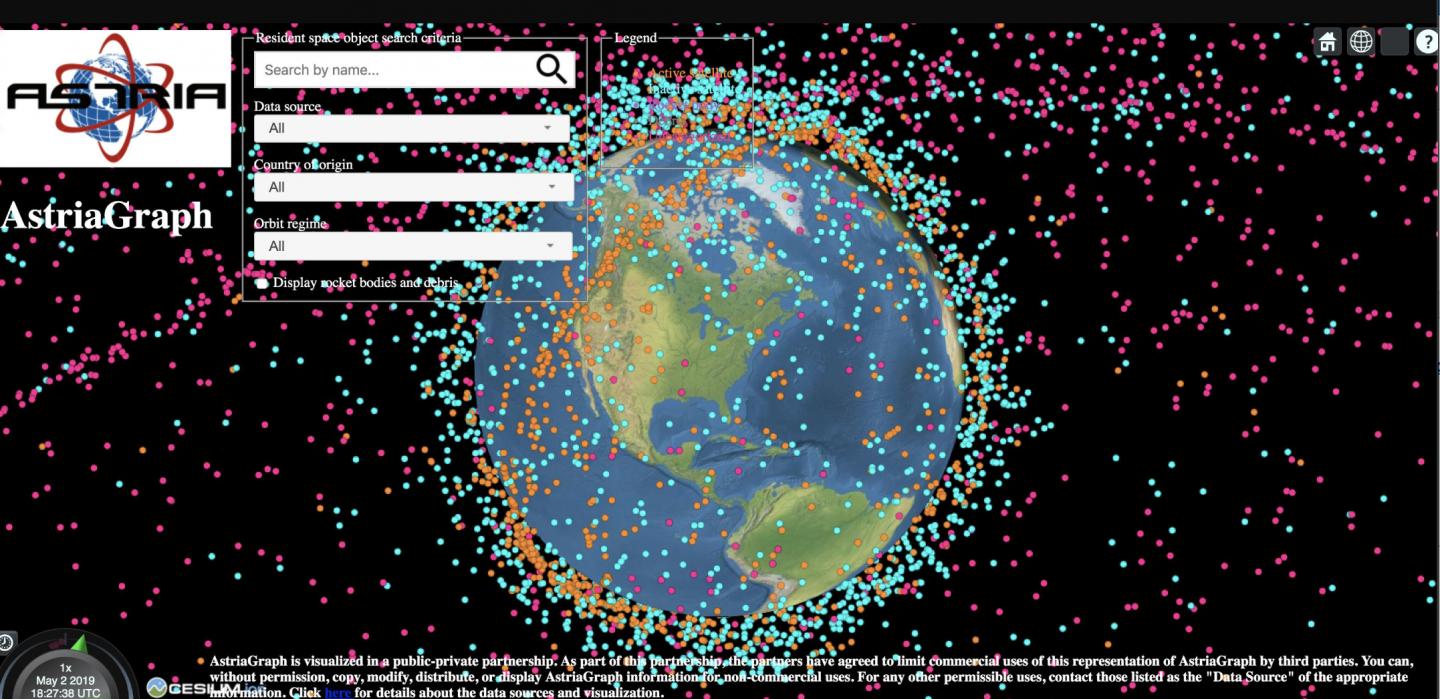The World Economic Forum has announced the introduction of a Space Sustainability Rating (SSR) system to help tackle the problem of space traffic and congestion in the Earth’s orbit

Credit: Cockrell School of Engineering, The University of Texas at Austin
The World Economic Forum has announced the introduction of a Space Sustainability Rating (SSR) system to help tackle the problem of space traffic and congestion in the Earth’s orbit. The announcement of the SSR and the participating collaborators was made today at the Satellite 2019 conference in Washington, D.C.
The program will be led by a global team of experts in the field, including the Cockrell School of Engineering’s Moriba Jah, an associate professor in the Department of Aerospace Engineering and Engineering Mechanics. A leading authority on space debris, Jah created AstriaGraph, an online monitoring system used to track and visualize objects orbiting the Earth.
“The near-Earth space is a global commons and is in dire need of environmental protection and measures of sustainability,” Jah said. “This is the first major step in establishing those sustainability metrics.”
Diane Howard, adjunct professor in UT’s School of Law, will work alongside Jah to provide expertise in space law and policy. The two already lead the Space Security and Safety program in UT’s Robert Strauss Center for International Security and Law.
As space becomes more accessible, the number of satellites being launched into orbit has increased substantially with little or no framework in place to regulate what happens to leftover debris or out-of-commission spacecrafts. The Earth’s orbit, therefore, has grown increasingly congested.
The SSR team will develop rules and processes by which the SSR will operate, including what information should be collected from satellite operators to assess their impact on space sustainability. The rating will be similar to LEED certification used by the construction industry.
While we depend upon some of the satellite equipment in orbit for navigation, communications and environmental monitoring, an estimated 20,000 pieces of debris remain floating in space. As the amount of space junk continues to grow, Jah said, the risk of collisions and damage to satellites in use increases, as well as creates potential environmental challenges in the long term.
Along with the Space Sustainability Rating, the new program also aims to develop a Space Traffic Footprint, a carbon footprint metric for calculating the burden that any given object in space poses to the safety and sustainability of others.
“The Space Traffic Footprint will include data on the size and location of an object, how crowded the orbital area it inhabits already is and if a satellite is maneuverable and trackable,” Jah said.
The SSR team will also include the Space Enabled research group at the MIT Media Lab, the European Space Agency and Bryce Space and Technology, an analytics and engineering firm. The idea for the SSR system originated from the World Economic Forum’s Global Future Council on Space Technologies.
###
Media Contact
John Holden
[email protected]
Original Source
http://www.



